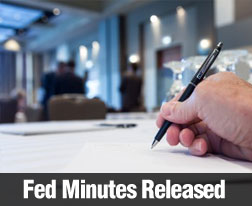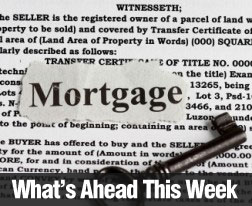 The Federal Open Market Committee (FOMC) released minutes from its January meeting last Wednesday, as it generally does three weeks following the most recent meeting.
The Federal Open Market Committee (FOMC) released minutes from its January meeting last Wednesday, as it generally does three weeks following the most recent meeting.
The FOMC is a committee within the Federal Reserve System tasked with overseeing the purchase and sale of US Treasury securities by the Fed.
The Federal Reserve makes key decisions regarding interest rates and looks to this committee for advice on how and when to take action.
The Future Of Quantitative Easing
One of the main topices that Fed leaders discussed was the future of its ongoing program of quantitative easing (QE).
Currently, the Fed plans to continue its monthly purchase of treasury bonds and mortgage-backed securities (MBS) with the objective of keeping the inflation rate at or below 2 percent.
The Fed plans to phase out quantitative easing when the national unemployment rate reaches 6.5 percent.
Fed leaders opposed to current quantitative easing brought up concerns about risk exposure to the Fed as it continues acquiring large quantities of bonds and mortgage-backed securities.
Other concerns included the potential for negative impact on financial markets if the Fed sustains its current policy of quantitative easing.
The Risk Of Inflation Creates Pause
Inflationary risks were also cited as a reason for re-evaluating the current policy for quantitative easing.
As the fed continues to purchase more and more mortgage-backed securities to keep interest rates down, a higher potential risk for inflationary pressure results.
Rising inflation rates would cause mortgage rates to worsen.
FOMC members concerned about current policy for quantitative easing suggested that the Fed should prepare to vary the timing of its purchases according to economic conditions rather than committing to scheduled purchases of specific amounts of bonds and mortgage-backed securities.
The next Federal Open Market Committee meeting is scheduled for March 19-20, 2013.
 A quiet past week in economic news caused mortgage rates to worsen slightly.
A quiet past week in economic news caused mortgage rates to worsen slightly.
